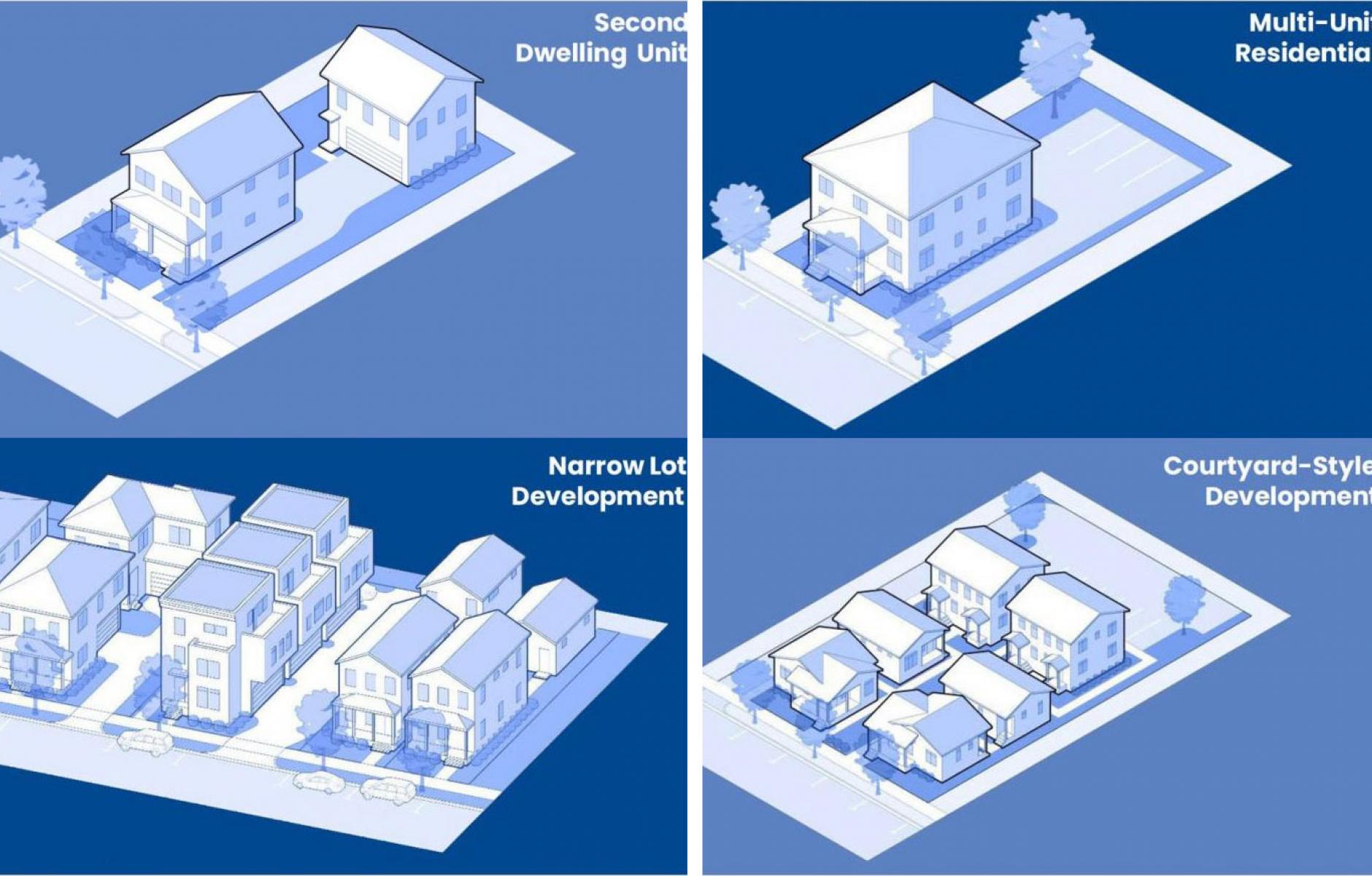
Arlington missing middle law struck down
While missing middle housing is often touted as an answer to rising housing prices, a Virginia court struck down a statute in Arlington, Virginia in late September.
A group of property owners sued Arlington County (effectively a satellite city to DC) over its law allowing up to six dwelling units on single-family lots. The decision raises concerns about whether it will set a precedent for further challenges to missing middle laws in other jurisdictions.
Missing middle housing laws allow additional units on single-family lots, usually aiming for a scale compatible with single-family neighborhoods (a maximum of 2.5 stories high). To get the scale right, reforms need a grasp of housing types and how they relate to existing neighborhoods. The concept of missing middle is based on the fact that older residential neighborhoods usually incorporate a range of housing—not just single family.
According to the website ArlNow, “Judge David Schell ruled against the county on four counts … finding that the county failed to adequately consider localized impacts, failed to follow proper procedure and violated state tree canopy requirements when adopting the amendments.”
The judge noted “It appears from the evidence that no consideration was given to the effect of additional sewage.” Meanwhile, a county expert testified that Arlington has sufficient infrastructure to support development based on the law.
“This ruling is very unfortunate, but it is the first of its kind that I know of. The judge’s finding that cities need to ‘study the impacts’ of any Missing Middle planning and zoning efforts in historically single-family neighborhoods is going to make it much harder for cities to deliver much-needed housing choices,” says Dan Parolek, an urban designer and architect who coined the term “missing middle.”
Reason Magazine, which laments the court decision, stated that the missing middle policy “could do much to protect property rights, reduce housing costs, and make it possible for more people to move to Arlington and make use of the many job and education opportunities available in the area, thereby benefiting both themselves and the regional economy.”
The county is expected to appeal the ruling.




